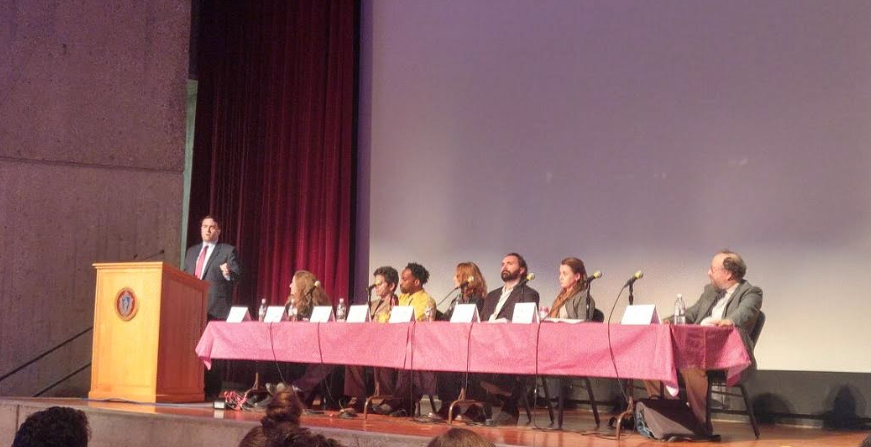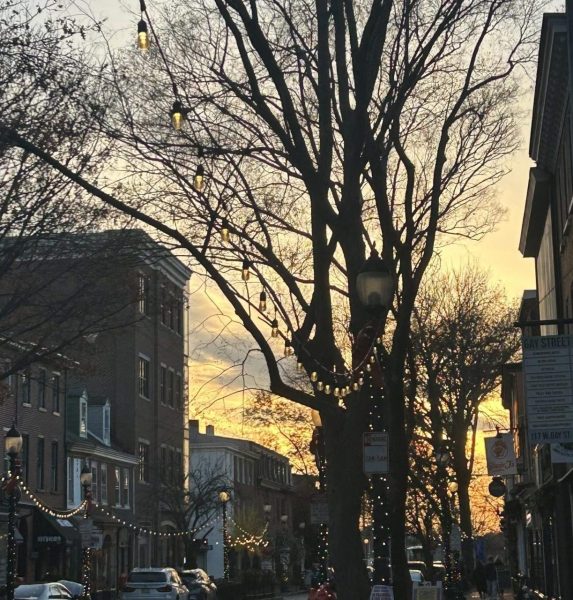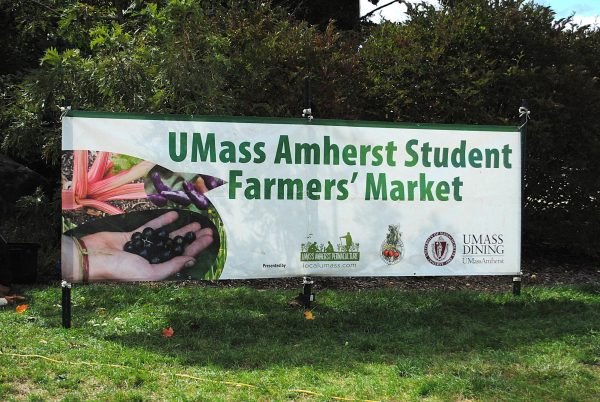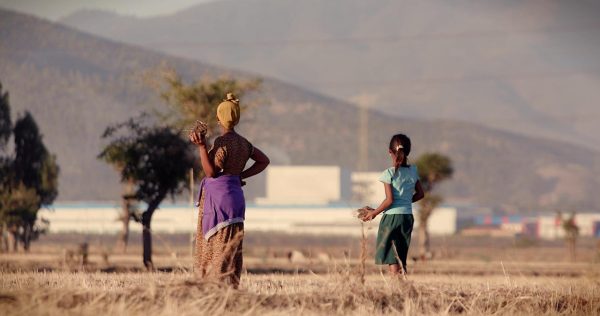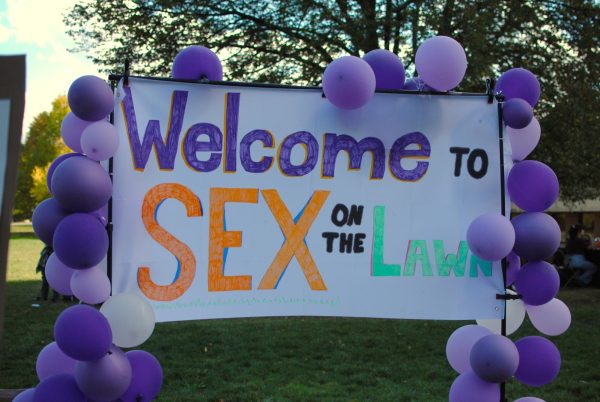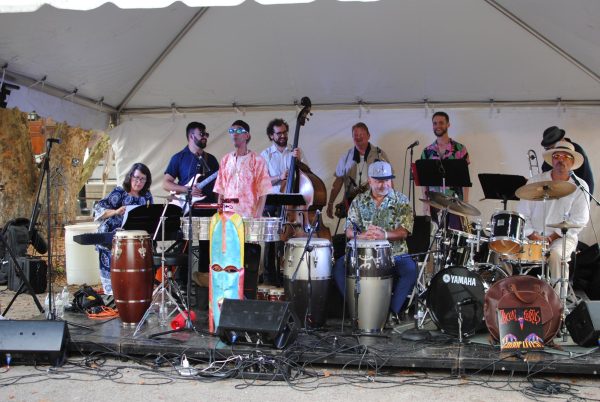‘Election 2016: What happened? What is likely to happen?’
UMass professors search for answers after Trump’s shocking victory
AMHERST — In the wake of a difficult and polarizing election, a panel discussion featuring professors from a diverse range of disciplines was held at the University of Massachusetts Amherst Wednesday night in the Campus Center in front of a crowd of roughly 250 people.
The event, titled “Election 2016: What Happened? What is likely to happen?” came in response to President-elect Donald Trump’s unprecedented victory, which sparked protests across campus and the nation.
While faculty members provided insight into public policy issues, audience responses directed the discussion more toward issues of racism and personal safety for members of marginalized groups.
The first audience commenter noted that the panelists mentioned the word race only three times throughout the hour-long lecture, and asked the faculty members to respond to the role of racism and white supremacy in the election of Donald Trump.
Tatishe Nteta, an associate professor of political science, said these factors played a significant role in the election.
“This is one of the instances in which white supremacy has taken hold of American politics,” he said.
Nteta cited Trump’s hiring of Steve Bannon, the chairman of Breitbart.
“We have a white supremacist who is in the West Wing serving as a chief strategist. We are at a place where most people didn’t think we would ever get back to. It is our charge, and your charge as a generation, and my charge as an American and a part of the older generation to fight it,” he said.
Paul Musgrave, assistant professor of political science, acknowledged the rhetoric of the Trump campaign.
“I don’t think that anyone on this panel fails to appreciate the ways in which not merely racialized but forthrightly misogynistic, forthrightly Islamophobic, forthrightly transphobic, forthrightly homophobic, forthrightly xenophobic language has been used,” Musgrave said. “And not just language. You will see some of these proposals translated into policy … It is frankly depressing that so many of the values that we have assumed, and so many of the values that previous administrations had performed, as being bipartisan and intending to marginalize the voices of hatred and oppression that has spoken and been heard so clearly over the last several months, it is heartbreaking to realize that that has changed.”
As to expectations for a Trump administration, Musgrave said that there’s a temptation to say that “everything will be fine.”
But he isn’t so sure.
According to Musgrave, Trump’s election and the current national climate warrants prudence and skepticism.
Audience members expressed fear over violence against marginalized groups throughout the night.
Rachel Walker, a nurse and educator at UMass, took to the microphone to ask about safety as the Thanksgiving break approaches.
“I was curious if the university had a plan for helping students, staff and faculty prepare for journeys to other parts of the country or the world where they may come up against … different opinions and or heightened concerns for their well-being emotionally, psychologically and physically,” Walker said.
Jennifer Lundquist, professor of sociology, spoke to the role of the classroom as a safe space for expression.
“A least from a faculty’s individual perspective, I think it is really important to think about how classrooms can be a safe space, how they can’t be and what are the limitations on thinking of that space as a safe space … to really try to get a dialogue going in the classroom to the extent that that’s possible. Education is where this starts, it’s communicating to one another in the classroom,” Lundquist said.
Kathy Forde, chair of the UMass Journalism department, also urged the importance of expression during a time when so many Americans, particularly young people, hold values that contrast with those of the incoming administration.
“You need to exercise your freedom of expression. You need to do it very robustly and in as many ways as you can. It’s an amazing tool for resistance,” Forde said.
Forde also expressed the importance of free and fearless press in these uncertain times.
“The press, as troubled as it is and as flawed as it is, is going to be a very strong voice in what happens next,” Forde said.
Paul Collins, a professor of legal studies, tried to quell some of the crowd’s concerns over LGTBQ and women’s rights, saying it is unlikely that Obergefell v. Hodges, which guarantees marriage equality, or Roe v. Wade, which guarantees a woman’s right to a safe and legal abortion, will be overturned.
Collins pointed out that Roe v. Wade has been “good law” since 1973 and the majority of the Supreme Court justices that decided the 2015 marriage equality decision remain on the court.
“I don’t believe that President Trump’s successor to Justice [Antonin] Scalia will be as conservative as Scalia in a number of regards. For example, I cannot fathom that an individual that believes that it is okay to criminalize gay sex, who has called the Voting Rights Act ‘racial entitlement’ and who has suggested that the 14th amendment does not cover gender discrimination can make it through the supreme court confirmation process in 2017,” Collins said.
Collins pointed out that in 1987, the Senate rejected Supreme Court nominee Robert Bork for his controversial views, and that Roe v. Wade has survived through three other conservative administrations.
Provost and event Moderator Katherine Newman also addressed a petition received hours before the panel that urged UMass to become a sanctuary for undocumented immigrants. President-elect Trump has said that he plans to deport all of the estimated 11 million undocumented immigrants living in the United States during his first term.
“We do not presently track the immigration status of our students…the protections that are being called for are in large part already in place,” Newman said.
Ray La Raja, a professor of political science, engaged the audience on healthcare, political parties and governance. He closed Wednesday’s discussion with words to consider while moving forward.
“This is going to be your generational challenge. It will be the challenge of my generation, as well, to see what happens when there’s an individual whose views and values do not comport with a majority of Americans, to rise up against it in a democratic fashion,” Raja said.
Email Allyson at [email protected].

